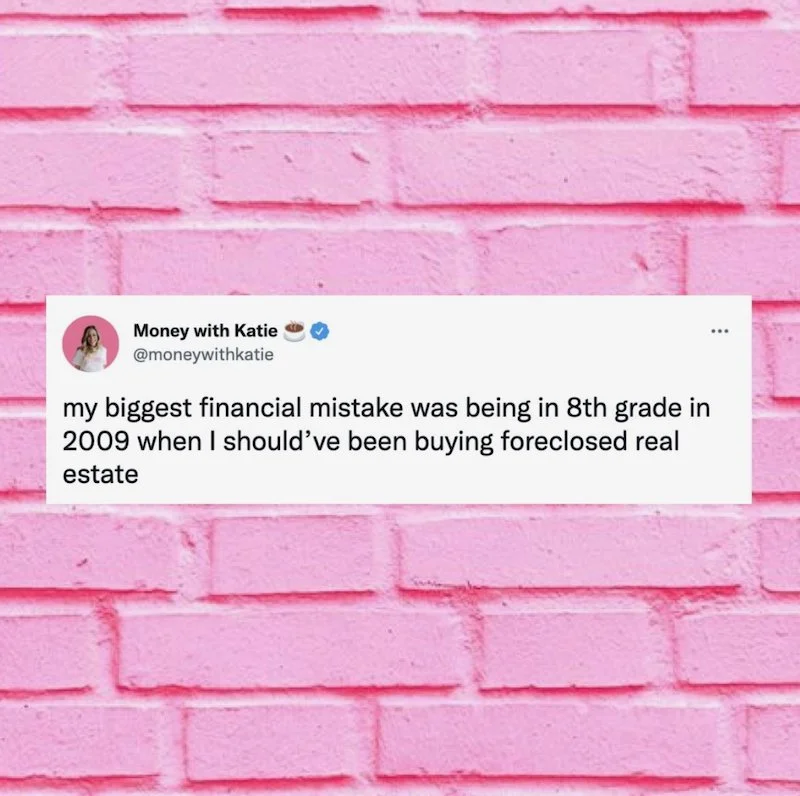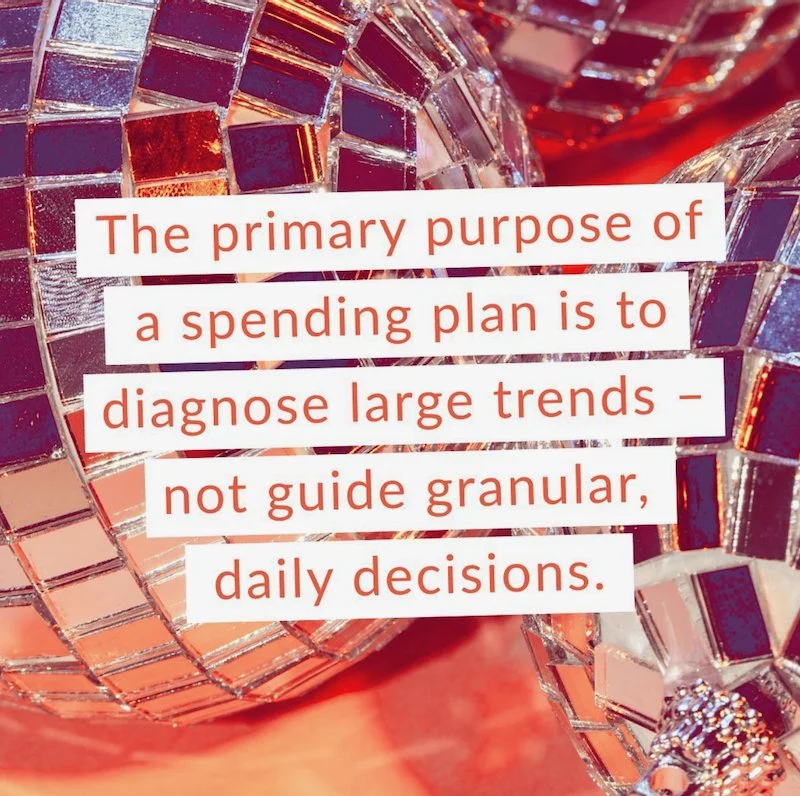8 Ways To Save Money Without Saying Goodbye To Manicures
We asked a brilliant expert. Because we had no idea.
by The Candidly Team
We’re all worrying about money, right? Even those of us who think of ourselves as “good” about it?
Are we saving enough? Or correctly? Or at all?
Where finances are concerned, most of us live with a certain degree of fear that there’s some strategic thing we’re falling short on or aren’t even vaguely aware of that will come back to bite us.
On top of that, we invest endless hours feeling guilty toward our future selves over things like our midnight purchase of the perfect pajamas or our 3rd Postmates order of the week.
In response to this anxiety, all we want are clean, concrete answers that make sense to us. Applicable things we can do to smartly save and still enjoy our lives.
And so, we reached out to financial expert Katie Gatti Tassin of Money With Katie to break down what we really need to know. And she left us feeling simultaneously relieved and ready to act. Our favorite way to feel where money is concerned.
1. One, somewhat embarrassing, realization we had when approaching this conversation is that we don't even fully know what questions we're supposed to be asking when it comes to smartly saving. How do you suggest we approach finance in a way that doesn't feel inherently overwhelming? Where do we start?
The best way to summarize how to be "good with money" is simple: Earn more, spend less, invest the difference.
Now, the details are where things get a little more complicated (and you can really make it as complicated or as uncomplicated as you want!)—but focusing on those three things and knowing which "level" of the game is most relevant for you is what it all comes down to.
(We know. Easier said than done. Which is why we’re interjecting to say, you can find lots of Katie’s specific tips and ideas for negotiating more money HERE.)
2. Obviously, we would all love to make more money doing the job we’re doing or by getting another better job. But as you’ve acknowledged, it’s hard to get off the hamster wheel when being on it is what pays your bills. How much control are you saying we have in terms of making more money? What strategies are you referring to?
Making more money is going to look different depending on your current situation, but I think most people fall into one of a few different buckets:
If you already work in a highly paid field and you have a reasonable expectation that you can scale your full-time income, your time will be best spent focusing on negotiating for more money, securing a higher offer from another company, or learning new skills that'll beef up your market value—not trying to do multiple jobs or start a side hustle. This is the most straightforward path.
If you don't work in a field where you have reason to believe you'll be able to scale your income (some good indicators of this: the people "above you" don't earn very much), you have a few options: namely, changing course (a little bit of a larger commitment that takes longer) or starting a side hustle.
Sometimes the pivot doesn't have to be extreme—for example, I got a degree in public relations. Most public relations practitioners are not very highly paid. But I knew I could write, so I got a job as a copywriter. Once I realized my income was going to be capped as a copywriter as well (and that it would be hard to advance), I pivoted to UX writing, a field that's more highly paid and enabled me to work in the tech sector where salaries were higher.
Ultimately, I ended up leaving entirely to run my own business (which started as a side hustle!), so I think it mostly comes down to being willing to do a little soul-searching and taking action. There's no one "right" way, but depending on your full-time job and professional background, your best shot will probably look a little different.
3. The avocado toast example gets overused, but to what degree do we have to give up little pleasures in order to save? How do we decide where to draw that line for ourselves, so we're still able to enjoy whatever we're earning?
It depends, I think, on what constitutes a "little pleasure" for you, and what percentage of your income it represents. The "rules" of personal finance tend to break at super low (or super high) incomes, but if you're somewhere in the middle, it's unlikely small discretionary purchases are going to make or break your outcomes.
What's most important is keeping your big, fixed expenses reasonable. That's not to say "death by a thousand cuts" isn't a thing, but quantifying can help: If you're going out to dinner every night for $100/pop, I wouldn't classify that as a "little pleasure." That adds up!
4. What are the most crucial tips a person can start doing today to save smarter?
The first is to know where your money's going. You don't have to track your spending forever, but you probably wouldn't start a rigorous nutrition plan without tracking what you were eating, right? It's just too hard to intuit these things; there's no substitute for tracking for at least a month or two.
The second is determining where your trouble spots are and digging deeper: Does anything jump out at you as unreasonable for your income? There are some rules of thumb around percentages for certain categories, but in general, you'll probably know it when you see it.
The third is calculating your margin—the difference between your income and expenses—and automating your savings each month so that the money isn't hanging around in your checking account waiting to be spent.
And finally, the fourth is revisiting your system as soon as your emergency fund is saved, because it's time to start investing and putting your money to more productive use than hanging out in cash!
5. Where money is concerned, planning seems to be everything. How do you set goals or plan in a way that factors in unexpected things like health issues or economic shifts without turning into a self-denying mound of stress?
The reality is that most of the stress we feel about money comes from what we don't know; from feeling like we're not in control. Even if you don't like what you find, you're still going to feel better once you face facts and have the pieces of the puzzle clearly laid out in front of you.
I try to plan as flexibly as possible—I take full advantage of my retirement accounts (for their amazing tax benefits) but then save and invest beyond that in my brokerage account for the future.
I'm flexible when things come up or if I'm able to save less than I anticipated sometimes, but I always try to stick to a few rules of thumb: Minimum savings rates (like saving at least 50% of my income, something I worked my way up to over the years), rules for how I treat any unexpected money (spend 10% on whatever I want but save the rest), but these are up to you.
The important thing is having a general system in place so you're not having to agonize over these decisions every single month.
6. What specific lifestyle changes really make the biggest difference?
Frankly, there are two: Earning more money and getting less house than you can afford.
Getting these two things right will make everything else fall into place a lot easier. They're both challenging, which is why we tend to focus on the little easy stuff that doesn't matter as much, but if you can focus on increasing your income and keeping your largest expense reasonable, every other goal you have will feel much more achievable.
7. Are there ways we should change our approach to investing after we turn 40?
Turn up the intensity! At 40, you've got around 20 years left before you're probably going to want to retire—you're in the second half of the "accumulation phase" ballgame, so it's actually a pretty great time to consult a professional and check in on your progress to see if you're ahead of, behind, or right on schedule.
If you're behind schedule, the good news is that there are usually minor tweaks that'll go a long way. I would recommend working with a fee-only CFP who charges by the hour, not an advisor who's going to charge a percentage of your assets (known as "AUM pricing").
8. Are there any apps or techy tools you especially recommend to help with budgeting?
I like the Copilot app as well as my Wealth Planner, a tool that I designed and developed—I've used it for years and it makes me feel so in-control and prepared for the future.
This interview has been edited for length and clarity.
This article is for informational purposes only. It is not intended to be used in place of professional advice, medical treatment, or professional care in any way. This article is not intended to be and should not be a substitute for professional care, advice or treatment. Please consult with your physician or healthcare provider before changing any health regimen. This article is not intended to diagnose, treat, or prevent disease of any kind. Read our Terms & Conditions and Privacy Policy.









